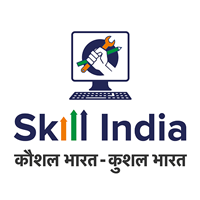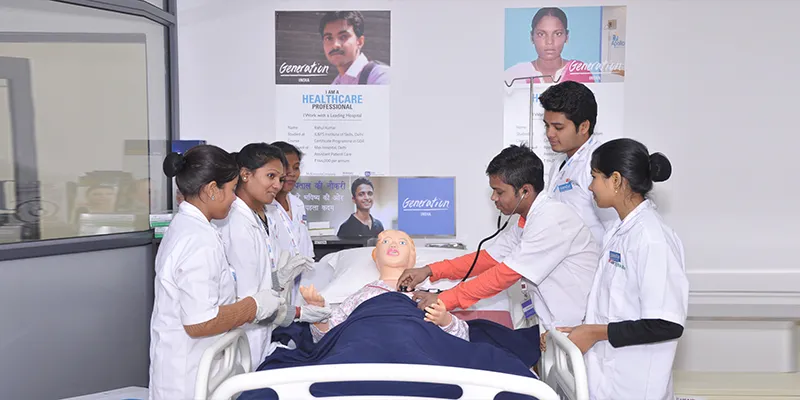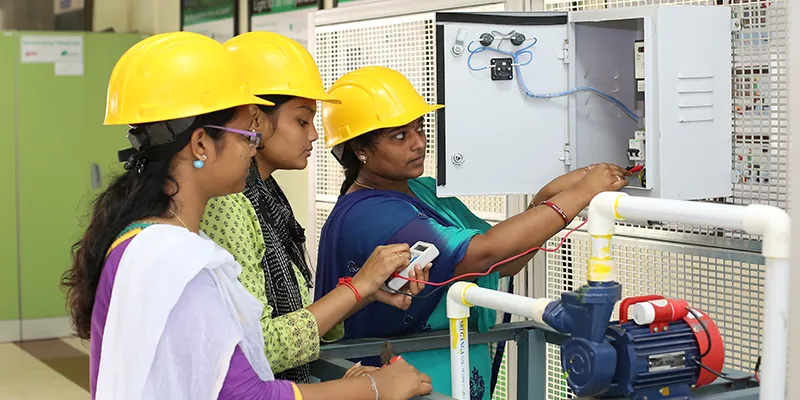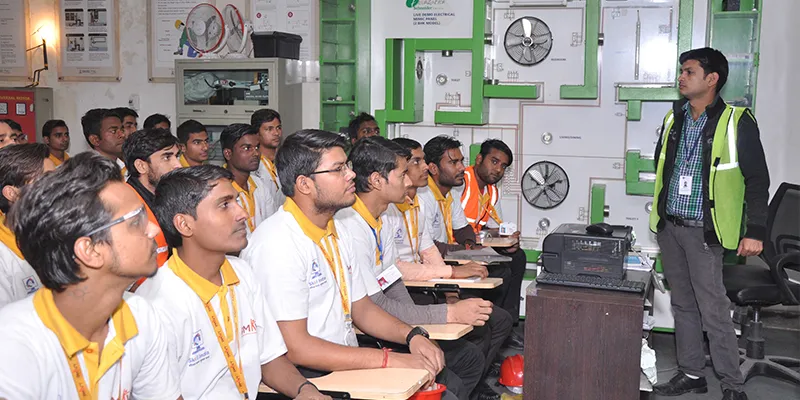
Skill India
View Brand PublisherSkill India: How industry-driven training is improving the employability of our youth
A focused approach towards education helps students prepare early-on for their careers. With evolving dynamics of job requirements in the highly competitive market, students graduating from educational institutes that are not considered ‘elite’, find it difficult to get a job or even a call for an interview. How can such students, either graduates or 12th pass-outs secure appropriate jobs to earn a decent livelihood? Acquiring the right skills for desired job roles is as important as degrees today, in some cases even more so.
“As an engineering student in a private college, my focus was on mastering my syllabus for the exams,” says Gayathri, 22-year-old software engineer from Chennai. “After I graduated, I found it difficult to find a job, as apart from academic knowledge I did not really have the skills required by the industry.”
Gayathri’s story will undoubtedly find resonance among several youngsters across India. It is the situation that most students, even from technical institutions, find themselves in after completing their graduation. The academic structures do not fully equip the students with skills that are required by the industry today. An overhaul of the system will eventually address this knowledge gap but there is still some time before that happens, for those waiting in the wings, eager to be a part of India’s growth story. In a world hurtling towards another industrial revolution that will be dominated by automation, artificial intelligence and robots, it has become imperative to train the young in the right skills, so they can adapt to new roles and professions.

Candidates undergoing training at a PMKK in Delhi
Gayathri got an opportunity at acquiring the knowledge and skills she was looking for through a Pradhan Mantri Kaushal Kendra (PMKK), a training center established by Ministry of Skill Development & Entrepreneurship (MSDE) under the umbrella of Skill India Mission. At the center, she underwent a four-month-long training in the job role of a Junior Software Developer, where she not only brushed up her software development skills, but also got to work on several real-time projects besides picking up soft skills necessary for a good job. Her hard work paid off when she was placed with IT giant, Mphasis with a respectable income.
Equally inspiring is the story of 37-year-old Teena who has a speech and hearing impairment. After facing rejections at several interviews, she sought to enroll herself in a placement-linked training programme at one of the National Skill Development Corporation’s affiliated training centres. Today, Teena works as a retail associate at Pullman New Delhi Aerocity, a premier hotel in Delhi, and credits the training she received at the centre for her success.

Carpet weaver certified under RPL component of PMKVY
The success of Gayathri, Teena and many others like them could be attributed to their hard work and the training they received at various short-term training centers and PMKKs across the country. Established under the Skill India Mission, these centres are equipped with smart classrooms, biometric attendance and audio-visual training aids. The centres also offer guest lectures by industry experts, dedicated counselling and placement support, things which are usually associated with state-of-the-art universities and colleges. Currently, there are 554 PMKKs established across 504 districts. MSDE plans to open one such centre in every district of India.
To further reach out to the people from economically weaker backgrounds, the Government launched Pradhan Mantri Kaushal Vikas Yojana (PMKVY) in 2015 that provides free-of-cost customised industry-oriented training courses across sectors. Till date, more than 45 lakh candidates have been trained under this programme. Additionally, to further mould the skills of the existing workforce, Recognition of Prior Learning (RPL) component of PMKVY certify candidates for their existing skills and ensure financial and digital literacy. Close to 10 lakh candidates have been certified under RPL, which has resulted in improved productivity for the industry and better knowledge and wages for candidates.

Female candidates undergoing training at NSDC-affiliated training centres
MSDE has also taken several steps to build a robust skill training ecosystem through focused policy interventions. Several amendments have been made to the Apprenticeship Act 1961, which has made it easier for industry to train and hire apprentices. The National Apprenticeship Promotion Scheme (NAPS) which was launched in August 2016, incentivizes corporates to hire apprentices and provide them on-the-job training. As a result, the number of candidates undergoing apprenticeship training have increased from 2.8 lakh in 2016 to 6 lakh in 2019. The number of corporates hiring apprentices has also increased from 11,000 to 75,000 during the same period.
In addition, the Ministry has strengthened Craftsmen Training Scheme (CTS) and the Craft Instructor Training Scheme (CITS) being executed over 15,000 Industrial Training Institutes (ITIs) across the country. CTS is the flagship course taught in the ITIs and provides training across 27 engineering and seven non-engineering trades such as electricians, fitters, welders, electronics mechanics, draughtsman (civil), mechanics (motor vehicle) and wiremen.
By 2020, India will be among the youngest countries in the world, with a median age of 29. In the next two decades, while the labor force in the rest of the industrialised world is expected to decline by 4 percent, in India it is expected to increase by 32 percent. The thrust to bolstering skill development and training in future-ready skills comes from mapping a new era of industrial growth, where clearly defined job roles will require skilled and informed employees.

PMKVY candidates undergoing classroom training
According to a study conducted by NSDC, using past data on investments (CMIE), bank credit (RBI) and employment data (NSSO), it is estimated that there is a potential labour demand of 2.5 crore across different sectors for the year 2018-19.
Skill development has come a long way in the past few years, especially in terms of optimum infrastructure, setting up institutional frameworks and introducing policy reforms aimed at better quality outcomes and scale. It is geared at creating an ecosystem of innovation-based entrepreneurship that generates wealth and employment, ensuring sustainable livelihoods. Training is only the first step; a lot more needs to be done to enhance the workforce for every job the new era demands.







